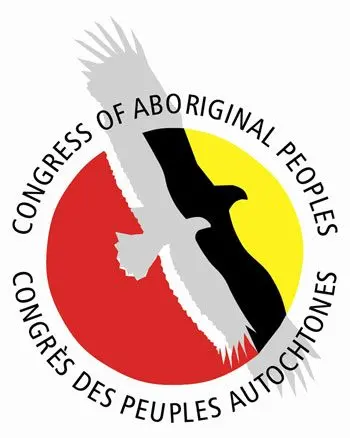
Today is National Day of Awareness for Missing and Murdered Indigenous Women, Girls, and 2SLGBTQQIA+ people, also known as Red Dress Day. It is a day set aside to honour the memory of Indigenous women, girls, and 2SLGBTQQIA+ people who have been lost to violence.
People are encouraged to wear red today. You may also see red dresses hanging in windows or in peoples yards.
“The color red symbolizes many things—blood, anger, love—but was ultimately chosen because it’s eye-catching. Those dresses have such a powerful presence. They are a reflection of the power and strength of Indigenous women that have come before us…When people walk by the red dresses, they can’t ignore them.” Jaime Black, REDdress Project
The Congress of Aboriginal Peoples issued a press release regarding the project, and an action plan in the works.
“Today, we stand with the families, friends, and communities who have lost a much-loved daughter, niece, sister, mother, grandmother, or auntie. We honour their memories as we continue to work for change.
After forty years of activism lead by Indigenous women, Prime Minister Justin Trudeau called a national inquiry into MMIWG, and in 2019, this inquiry released its Final Report, Reclaiming Power and Place in which it concluded that Canada was guilty of genocide for failing to protect Indigenous women, girls, and 2SLGTBQQIA people from violence. The Report exposes the vast human rights violations that are the foundation for the systemic violence occurring in Canada against Indigenous women, girls, and 2SLGBTQQIA+ people.
From the report, “The significant, persistent, and deliberate pattern of systemic racial and gendered human
rights and Indigenous rights violations and abuses – perpetuated historically and maintained
today by the Canadian state, designed to displace Indigenous Peoples from their
land, social structures, and governance and to eradicate their existence as Nations,
communities, families, and individuals – is the cause of the disappearances, murders, and
violence experienced by Indigenous women, girls, and 2SLGBTQQIA people, and is
genocide. This colonialism, discrimination, and genocide explains the high rates of
violence against Indigenous women, girls, and 2SLGBTQQIA people”.
The Report calls for transformative justice and shares the truth of family and community members as well as incorporates 231 Calls for Justice directed toward Canada’s government, legal system, social services, and all colonial institutions and Canadian citizens.
The Congress of Aboriginal Peoples National Chief, Elmer St. Pierre, expresses his deepest sorrow for the families: “Today is meant to bring awareness of MMIWG and remind our governments and public institutions of their responsibilities to Indigenous women, girls, and 2SLGBTQQIA+ people and ending violence in all its many forms. Still, we are frustrated with the delay of the federal government’s long awaited national action plan in response to the final report of the National Inquiry into Missing and Murdered Indigenous Women and Girls”.
Two years after the Final Report of the National Inquiry, the action plan is to be released on June 3, 2021. The Congress of Aboriginal Peoples hopes it answers the National Inquiry’s calls to develop and implement a national action plan to address violence against Indigenous women and girls.
-Damien Gnass, Trending 55





